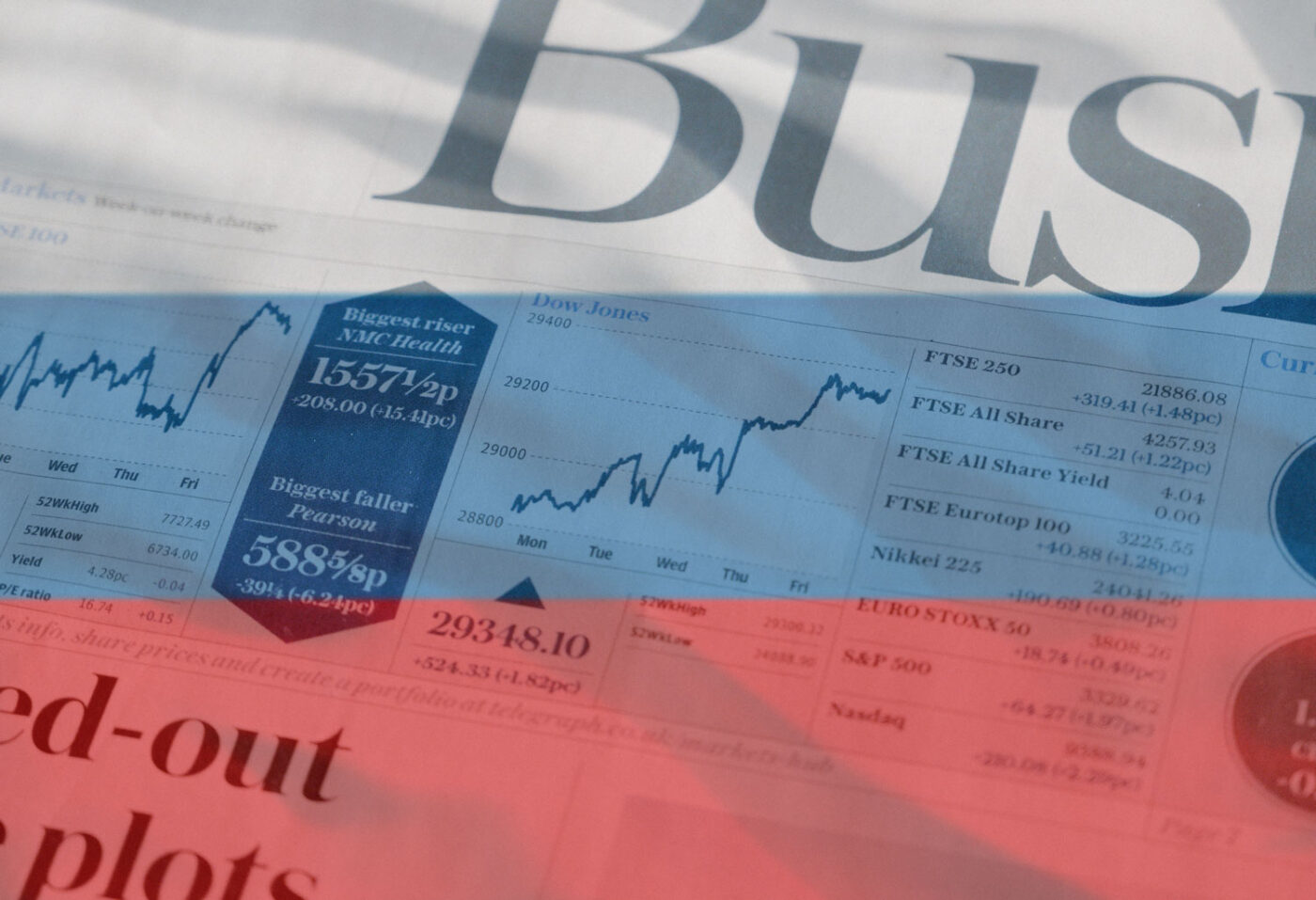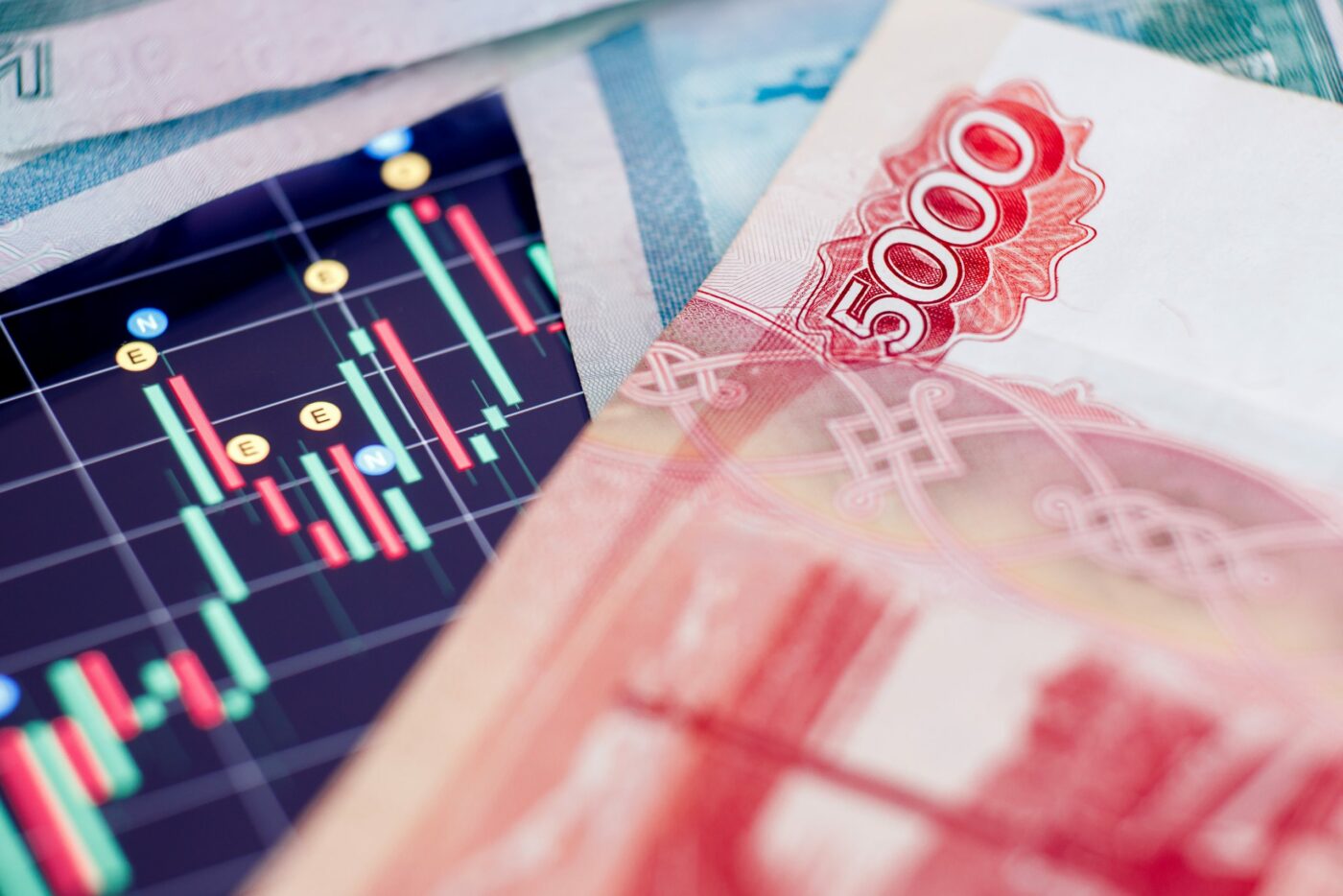ADR and GDR conversion 2025

Conversion of ADRs- and GDRs: This is how it works
Due to the sanctions against Russian companies, there continues to be great uncertainty surrounding private and institutional investments in so-called ADRs and GDRs. Anyone who does not exchange their depositary receipts for Russian companies into shares within the conversion windows set by Russia risks, in the worst case, a total loss of their investment. However, the conversion is associated with considerable practical challenges. That is why we at the Energy Law Firm Goldenstein have developed concrete solutions and are successfully supporting investors in the conversion of their DR holdings.
This is how investing in Russian ADRs and GDRs works
Russian stocks can be traded exclusively on the Moscow Exchange. To do this, investors need a securities account in Russia. In order to enable investors worldwide to still invest via their domestic banks and brokers, many Russian issuers have established so-called depositary receipt programs. In this system, shares are made tradable on international stock exchanges in the form of depositary receipts – American Depositary Receipts (ADR), Global Depositary Receipts (GDR), or European Depositary Receipts (EDR).
However, since the beginning of Russia’s war of aggression against Ukraine and the Western sanctions, this system has come under pressure. A law passed in Russia in 2022 obliges many issuers to terminate their DR programs and forcibly convert the receipts into Russian common shares. For investors, this means: within a predefined conversion window, the DRs must be exchanged – otherwise, a permanent loss in value threatens.

Normally, the investor registers the conversion with their bank. The bank then forwards the request via Clearstream (the European DR depository) to the Russian National Settlement Depository (NSD), which ultimately books the shares into the investor’s previously opened Russian securities account. Current sanctions and the complex onboarding process for opening such an account significantly complicate this procedure – making it all the more important to act early.
These Russian Companies are ending their ADR and GDR Programs
In April 2022, a law came into force in Russia that obliges issuers to terminate their depositary receipt programs and forcibly convert the receipts into Russian common shares. Following an initial wave (2022/23), a second conversion round is currently underway, again with very short deadlines.
- The program of TCS Group already ended on 26 June 2025.
- For MD Medical Group PLC, the conversion deadline ends on 25 September 2025 – immediate action is essential.
- For Etalon Group and CIAN PLC, final short conversion windows have been announced. There is still room to act, but this window is closing quickly.
| Company | Expire date of the DR-program |
| MD Medical Group PLC | 25/09/2025 |
| Etalon Group PLC | open |
| CIAN | open |
Important: For all of the above programs – anyone who misses the deadline risks having their DRs written off as worthless. Therefore, act early and plan sufficient time for opening a Russian securities account, document certifications, and shipping to Russia.
This is how the conversion of Russian Depositary Receipts works despite sanctions
In general, the following applies: when converting Russian depositary receipts into common shares, swift action is required, as the respective conversion windows are strictly limited in time and the process is significantly more complex than it was before 2022.
One major problem remains that since summer 2022, Clearstream, as the European depository, has fundamentally refused to forward conversion requests without explicit sanctions approval, in order to prevent Russian depositories from profiting from the conversion processes. The EU responded to this in June 2023 by amending Regulation 269/2014. Since then, brokers, banks, and depositories were able to apply for authorization from the German Bundesbank for each individual transaction up to 25 September 2023, provided the company in question is not listed on a sanctions list.

To simplify and accelerate the conversion process, Russian depositories are currently waiving fees for processing conversion requests. However, this practice by the Russian depositories can change at any time. As a result, investors can currently apply for the conversion of their ADRs without an exemption permit from the Bundesbank. Since it is not foreseeable if or when Russian depositories will once again impose fees, investors should act immediately to secure their investments and avoid, in the worst case, a total loss.
The greatest hurdle in most cases is the opening of a Russian securities account: without a Russian account, the registrar cannot credit the shares. Due to the geopolitical situation, notarizations, apostilles, and courier delivery are time-consuming. It is therefore all the more important to start the process in good time.
And this is how it works:
The major depositary banks Citibank, J.P. Morgan, and BNY Mellon are currently opening or closing their books on a case-by-case basis depending on the program. For some non-sanctioned issuers, voluntary cancellations are once again possible; for sanctioned securities such as Inter RAO UES or Rosseti, the books remain closed. For Gazprom, an automatic conversion round managed by the Russian central depository has been running since 9 June 2025; the traditional route via the U.S. depositary bank is currently not required here.
Since the book status notifications of the depositary banks often change within a matter of days, we check the current submission eligibility and applicable deadlines on a daily basis for each mandate. This ensures that your documents are submitted on time and through the technically correct channel.
Questions and Answers
What are Depositary Receipts anyway?
Depositary receipts (DRs) are receipts issued for Russian shares. As Russian shares may only be traded on the Moscow Stock Exchange, many Russian companies have launched Depositary Receipt Programs. In the course of these, European and American credit institutions have taken Russian shares into custody and issued depositary receipts for them that were also tradable on western stock exchanges without any regulatory effort or expense.
Depending upon which stock exchange the Depositary Receipts are traded, these depositary receipts are designated as ADRs (American Depositary Receipts), GDRs (Global Depositary Receipts) and in part also as EDRs (European Depositary Receipts).
Must I convert my Russian DRs in every case?
Whether you must convert your Russian Depositary Receipts depends upon your own individual investments. Russian companies such as Norilsk Nickel or Tatneft have, for example, been granted special permits to continue their DR programs. In these cases, there is therefore no acute need for action. It has, however, already been confirmed that trading in the DRs of major companies such as Gazprom, Gazprom Neft, the Sberbank, Magnit, Lukoil, Mobile TeleSystems, RusHydro, the VTB Bank, the LSR Group and the Federal Grid Company of Unified Energy System (FGC UES) will be ended. Furthermore, more companies will most probably be added to this list. Affected investors must therefore have their depositary receipts converted into shares if they do not want to risk a forced sale and a total loss of their own investment.
Can I simply just keep my DRs?
Depositary receipts from companies whose DR programs end cannot be held for. The Russian DR programs expire at different dates and must be converted into common stock by then. Otherwise, they will be forcibly sold at a currently unknown price. After that it will no longer be possible to keep these DRs in your own depot. Otherwise, they will be forcibly sold at a currently unknown price.
However, good news for affected investors is that even securities from depositary receipt programs that have already expired can still be converted into common shares in some cases. However, it is unclear how long this will be the case. Therefore, quick action on the matter is required.
What will happen if I do not convert my Russian DRs?
If you do not convert your Russian Depositary Receipts to shares in time, the respective custodian bank will attempt to sell the share. Investors affected will then receive the respective sales proceeds minus any costs and fees incurred. However, it is currently unclear whether this will be possible, due to sanctions. Furthermore, even in the event of a sale, you are threatened with an enormous loss of value and, in the worst case, the total loss of your own investment. Finally, innumerable depositary receipts would then appear on the market at the same time. Investors from countries like China or Russia, on the other hand, would have the opportunity to benefit from the forced sale by buying up the securities from Western investors at low prices.
How much time I have to convert my Russian Depositary Receipts?
All conversion deadlines set by Russia have actually already expired. But the good news is that a forced sale of affected securities has not yet taken place and the conversion of depositary receipts into actual shares has still worked in some cases even after a DR program has expired. However, it is unclear whether and for how long this will still be possible. In addition, the conversion is further complicated in part by the fact that European banks, brokers and custodians are partially blocking the conversion process and some of the US issuers of the ADRs have closed their books.
There was good news in spring 2023: After American issuers reopened their books for some ADR programs, conversion applications for these programs have already been partially successful. It often didn’t even matter whether the respective DR program had actually already expired.
In addition, in June 2023, the EU Commission explicitly allowed brokers, financial institutions and custodians such as Clearstream to generally accept conversion applications relating to securities of non-sanctioned companies in future. Previously, the corresponding institutions had no longer accepted any corresponding conversion applications with reference to possible sanctions.
We at the Goldenstein business law firm support investors in carrying out this process successfully and advise them free of charge on what preparatory measures can currently be taken and how a conversion can be successful now or in the future.
Can I simply open a depositary account with a Russian bank and transfer my shares to that?
Opening a securities account with a Russian bank is currently associated with a great deal of effort for Europeans or European companies and sometimes even requires a local presence. We at the business law firm Goldenstein therefore help private and institutional investors to overcome these challenges together with our international partners in order to save European investments in the Russian market. We keep the effort as low as possible for our clients, so that, for example, no trips to Russia are necessary.
Am I free to choose the bank that will hold my Russian shares in future?
Currently, only a few Russian banks offer to open deposit accounts for foreigners from “unfriendly countries”. We can therefore only offer you a limited selection of institutes, but of course we will coordinate the choice with you in advance. There are currently no account opening or account management fees for corresponding securities accounts. This means that there are no additional costs for you.
I own DRs from various Russian companies. Can I transfer the deposited shares to one account?
The conversion of each class of ADR requires a separate conversion order to your bank. However, since we also verify the custody accounts opened in Russia for you, all classes of shares can be transferred to your custody account.
When can I expect the exchanged shares to be deposited into my account?
Experience has shown that the conversion takes about six to eight weeks. As soon as the conversion of your depositary receipts into actual shares has been successful, they are immediately in your Russian custody account. Since online banking functions for Russian custody accounts from Europe are often not currently possible, our local partners will fetch physical account statements for you on request, which we will be happy to send to you as a digital scan or, if you wish, in paper form.
Can I sell the converted shares immediately via my new custody account?
Dividends will be paid into a clearing account opened for you by us. A payment of the dividends to a German account or an account in the EU is not possible for the time being due to the existing sanctions. It is also currently not possible to predict when these options will be available again. However, the dividends paid out are collected on the respective clearing account until payment is possible and desired again.
Will I receive dividends again after the conversion?
Dividends are paid out to the new clearing account at the respective custodian bank. However, the payment of dividends to a German bank account or an account in the EU is not possible for the time being due to the existing sanctions. It is also currently not possible to predict when these options will be available again. However, the dividends paid out are collected on the respective clearing account until payment is possible and desired again.
A separate application is currently required for the payment of dividends. Support with this is also part of our service portfolio.
What does the exchange do for me if I have to hold the converted shares afterwards?
By converting your depositary receipts into actual shares, you can decide for yourself if and when you want to sell your securities. If you do not convert, the shares behind your DRs will be sold by the issuing bank on the open market as soon as the respective conversion period has expired and trading is possible again. Since at this time masses of shares from the respective companies will probably come onto the market, there is a high probability of massive price losses. But if you have converted your DRs, you can sell your shares when the price has recovered. Alternatively, you can of course also hold your shares, for example to benefit from dividend payments.
Does the commercial law firm Goldenstein also offer an exchange of DRs from companies whose DR programs have been extended?
We also support you in the conversion of Russian DR classes whose DR program has not been terminated, provided they are not affected by sanctions and conversion is currently possible.
I possess ETF with Russian shares. Do I have to convert these investments also?
No. Anyone who has invested in ETF with Russian shares need not concern themselves with anything at the present. In this case it is the ETF provider who is responsible for examining the conversion of Russian Depositary Receipts and, if need be, for implementing the same.
Must I transfer the ownership of my shares for conversion to third parties?
No. We of the business law firm Goldenstein will help you to rescue your investments in Russian Depositary Receipts without needing to transfer these to third parties. Together with our international partners, we will open a depositary account for you and take care of the conversion of your DRs to shares. We shall thereby be charging a fee only for our expenses.
Has the commercial law firm Goldenstein already successfully converted their clients’ depositary receipts into shares?
Yes. Together with our partners, we have already mastered the conversion of our clients’ depositary receipts many times over. However, we cannot give a conversion guarantee, since the requirements for a successful conversion change regularly. Of course, we react immediately to corresponding changes and, in this case, develop new solutions for our clients. You also benefit from the fact that half of our legal fees are only due once your securities have been successfully converted.
Does the commercial law firm Goldenstein work together with Deeland Investments?
No. Deeland Investments has used texts from our website without our consent and sometimes even communicated on behalf of our firm. There is no cooperation between us and Deeland Investments and we reserve the right to take legal action.